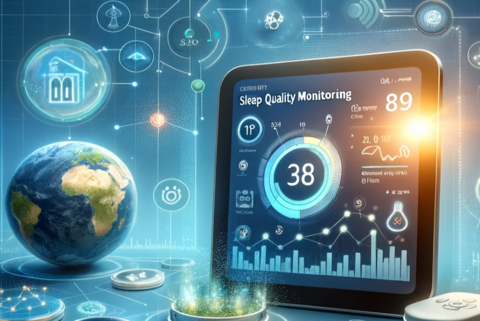
This Mitacs-funded ( IT18953) postdoctoral fellowship explored IoT-based big data from the Donate Your Data (DYD) initiative by ecobee, a smart thermostat company, to evaluate sleep quality metrics. Sleep quality is critical to human health and well-being, influencing numerous physiological and psychological processes. Traditional methods of sleep data collection often face limitations due to recall bias and subjective interpretation. This research presents a novel framework for objectively measuring and evaluating sleep quality using smart thermostats equipped with motion sensors, offering non-invasive and effortless sleep monitoring. Furthermore, the study examined the USA DYD dataset to assess population-level sleep duration in the USA during the COVID-19 pandemic, highlighting how public health policies, influenced by political parties' priorities for healthcare systems, affect sleep patterns.
This innovative approach demonstrates the viability of using smart thermostats as a data source for sleep quality evaluation, introducing a new perspective on technology in health surveillance and facilitating personalized sleep improvement strategies for sleep technologists and healthcare policymakers. The research is ongoing, with efforts to integrate temperature data from ecobee datasets to further understand the connection between indoor temperature and sleep. This is particularly relevant in the context of global climate change, characterized by increasing temperatures and more frequent and intense heatwaves, posing significant public health challenges worldwide. The research aims to address these challenges by developing an advanced framework that integrates data on climate factors, uncovering patterns and correlations between climate hazards and health outcomes. This approach aims to enhance surveillance capabilities, providing timely, comprehensive insights into the impacts of individual exposure to climate hazards on sleep health. The research will develop a near real-time heatwave dashboard platform to monitor, predict, and display heatwave information, specifically focusing on how these environmental changes impact sleep health outcomes.